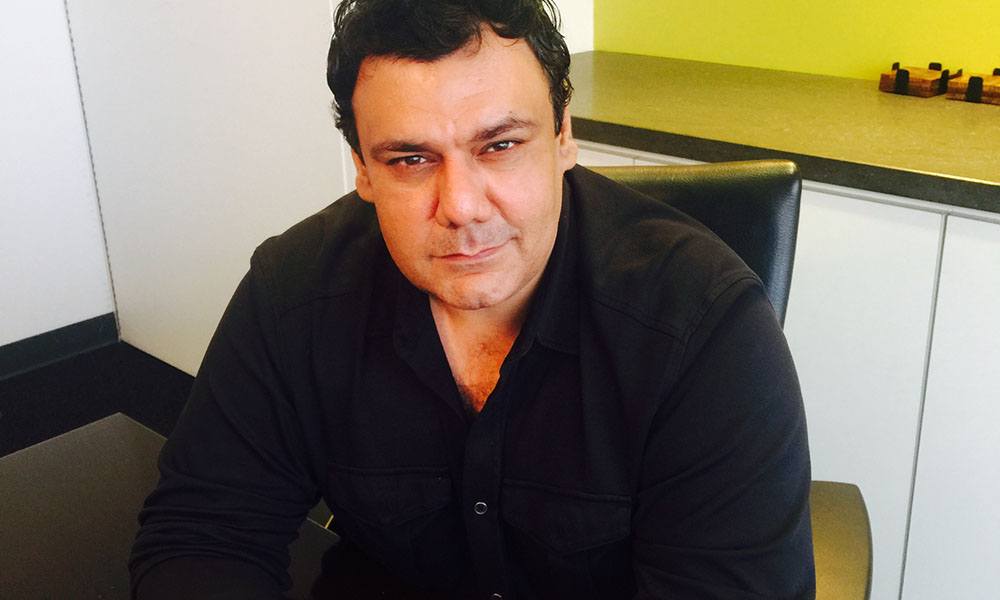I’m always taking notes. I sketch ideas out on paper, then I use Excel to hash them out further. Then, I come up with a framework for how I’ll execute the idea, and I create a working prototype to test my assumptions. Once I have data to prove the idea is worthwhile and will have an impact on users, I add it to my task list for execution.
Kashif Aftab is a consummate innovator and the founder and CEO of SkillGigs. He caught the entrepreneurial bug at age 10 while visiting his father’s manufacturing facility, and he developed a love for programming after writing his first lines of code at age 11. He founded his first company, an IT consulting firm, at age 25 and bootstrapped it to profitability within a year. After exiting that venture, he started two additional companies, IQ Tech Pros, the world’s largest full-service IT integration network with more than 30,000 members, and Nurses Pro, a nursing staffing company servicing some of the largest hospital systems in the U.S. Beyond growth hacking his way to success, Kashif enjoys traveling the world with his culturally curious taste buds in tow.
Where did the idea for SkillGigs come from?
With more than 17 years of experience in the IT and healthcare staffing industries, I always used to shake my head at the inefficiencies of recruiting. I was on eBay one day, and I realized its model would be a great way to connect talent with employers for permanent and contract hiring.
What does your typical day look like, and how do you make it productive?
I get up around 6:30 a.m. to answer important emails and review my priorities for the day. I get to the office around 10 a.m. From there, I split my day into blocks based on my priorities for the day. I do my best to squeeze in a workout over the lunch hour. To keep myself thinking clearly, I make sure I don’t work on more than five priorities per day.
How do you bring ideas to life?
I’m always taking notes. I sketch ideas out on paper, then I use Excel to hash them out further. Then, I come up with a framework for how I’ll execute the idea, and I create a working prototype to test my assumptions. Once I have data to prove the idea is worthwhile and will have an impact on users, I add it to my task list for execution.
What is one habit of yours that makes you more productive as an entrepreneur?
I’ve always been able to recognize that not every opportunity is worth pursuing.
What was the worst job you ever had, and what did you learn from it?
I’ve never had a bad job. Every job I’ve ever had was a learning experience. To be fair, I didn’t have too many jobs before becoming an entrepreneur — I started my first company at 25. My job as a waiter at the busiest Denny’s in Ocean City, Maryland, taught me how to juggle multiple tasks in a fast-paced environment, manage customer expectations, and manage my own stress.
If you were to start again, what would you do differently?
As a serial entrepreneur, I’m constantly learning. Thankfully, because of my line of work, I’m able to restart and do things anew. But if I were to restart at the age of 25, I probably would’ve moved to Silicon Valley to start my first company.
As an entrepreneur, what is the one thing you do over and over and recommend everyone else do?
Always keep learning; knowledge is everything.
What is one strategy that has helped you grow your business?
Above all, I strive to be transparent. I always keep my word.
What is one failure you had as an entrepreneur, and how did you overcome it?
Right after I started my second company, 9/11 happened. The IT bubble burst, and sales dropped by more than 50 percent. I returned to the drawing board, and I figured out how to survive in good times and bad. It was through these experiences that I learned the power of marketing and speaking with your customers.
Tell us something about you that very few people know?
I’m a songwriter. I love writing music.
What software and web services do you use? What do you love about them?
My team uses Asana for communication and task management. I love how easy and intuitive the software is, and it keeps my teams organized and in constant communication.
What is the one book that you recommend our community should read and why?
“The Five Dysfunctions of a Team” by Patrick Lencioni. If you don’t have a great team on your side, you can’t achieve much.
What people have influenced your thinking and might be of interest to others?
Dale Carnegie, Robert Cialdini, Benjamin Franklin, Jalāl ad-Dīn Muhammad Rūmī, Claude Hopkins, and Steve Jobs.
Connect:
SkillGigs on Facebook:
SkillGigs on Twitter: @skillgigsonline
SkillGigs on LinkedIn:
Mario Schulzke is the Founder of ideamensch, which he started a decade ago to learn from entrepreneurs and give them a platform for their ideas.

